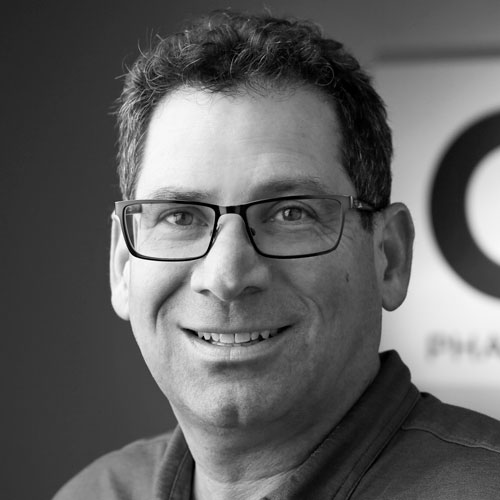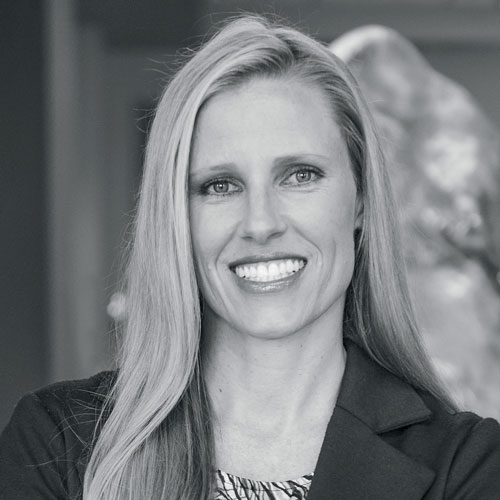Kelli Powers knew right away that she would enjoy working for Huntsville Hospital after making one simple observation: CEO David Spillers knew his employees’ names.
Powers, who was the CEO of a different hospital at the time, describes herself as an “employee advocate.” So when a CEO position opened up at Athens-Limestone Hospital, one of Huntsville’s affiliates, she applied and got the job.
As the expansion of Huntsville’s network continued—now encompassing nine different hospitals across northern Alabama—Powers also found herself in a state of transition. Spillers invited her to serve as the CFO for Huntsville Hospital itself. While the shift wasn’t an unprecedented one—Powers began her career in finance—it did pose several daunting challenges, as well as the question of how she could best serve employees in this role.

One of her major responsibilities, after all, is consolidation while creating the system—an initiative that’s bound to make employees nervous. Huntsville’s network has grown large enough that it makes operational and financial sense to ensure that all of its affiliates’ processes are aligned with those of Huntsville Hospital. As such, a majority of Powers’ work as CFO is uniting each hospital’s business offices under one roof, which is a push that began just last year.
Powers got started by shepherding each hospital onto the same payroll system, a process that serves as a prologue to the larger effort of boiling down the four different computer systems being used by Huntsville’s affiliates to just one—with one hospital’s payroll left to transition. Changes such as these can be worrisome for employees because it often necessitates changes in location or management. There’s also the possibility that one’s job may be lost in the consolidation.
But Powers and her team met these fears with a commitment to clear communication and transparency, as well as a solution that demonstrated just how much Powers and Huntsville value their employees.
“With the Congressional Budget Office consolidation, we gave all of those people an opportunity to work at our business office,” Powers explains. “If that didn’t work out, then they could find a job at the hospital doing something a little different.” It was a reasonable compromise, one designed with employees in mind. As such, Powers says the only jobs lost in the transition were through attrition.
Losing employees is the last situation Powers and her team want, and she is constantly working toward creative ways to streamline operations that don’t involve staff reductions. “I’m always looking for cost-saving ideas that do not impact people financially,” she says. “One thing that leads to good patient care is creating a work environment where people want to come to work.”
Just like Spillers, Powers works to know the names of all of her employees, a formidable challenge considering they surpass four hundred in number. She provides herself plenty of opportunities, however, by throwing a healthy amount of celebrations. In the past, she’s even gone “undercover.” Early on in her tenure at Huntsville, before she got to know everyone, she presented herself as an accountant when working alongside employees to help with inventory at one of Huntsville’s affiliates.
“There were a lot of things I found out that day,” she recalls, as it was through this exercise that she learned of broken equipment in one of the hospital’s operating rooms and a lack of funds to fix it. Employees, she says, might be hesitant to push certain issues when there are larger concerns at hand, but it’s helpful for Powers to know of any and all ways she can improve conditions for her team.
Powers values all of her employees, and she has a particularly strong devotion to nurses. “In our business, it’s all about the care you receive, and a lot of that comes through nurses,” Powers says. “Obviously, there are other people involved in care, but the nurse is with the patient all day long. And it’s a tough job taking care of people when they’re sick. They’re not happy, and it can be hard to make them happy.”
With that in mind, Powers is often asking herself how she can, through her position as CFO, “bring savings to the system that we can in turn put back into nurses’ pay.” But it’s not just pay that Powers wants to provide.
It’s also a better work environment. For a nurse, that means supplies and resources. “When I worked at Athens, we had one bladder scanner for two floors,” she says. “Here, I’m always thinking about how can we work to give nurses the tools that make their jobs easier.”
Powers often returns to a lesson she learned from a former boss: with any decision, think about how it affects the people that make the least amount of money. Because she keeps that in mind, Powers has learned how to find alternative avenues when it comes to cost-cutting and streamlining.
In addition to being an employee advocate, she also describes herself as a “change advocate.” Change, she says, can be difficult for anyone to process, but it’s change that often allows Powers to create an environment where employees are most valued.
That’s crucial when Huntsville is in the midst of so much transition. As daunting as the expansion may be, though, Powers knows it’s what’s best for Huntsville. “I’m not afraid to take on some more,” she says.
And as Huntsville better equips itself to take care of the local community, Powers will do everything in her power to ensure a fruitful future for those giving that care.
Photo courtesy of Huntsville Hospital
Hayes is proud to partner with Huntsville Hospital to drive revenue cycle improvement. We are grateful for Kelli Powers’ leadership and her team’s talent and drive to deliver bottom line results. We applaud the entire Huntsville team for the work they do to continue to improve healthcare for their patients every day.


